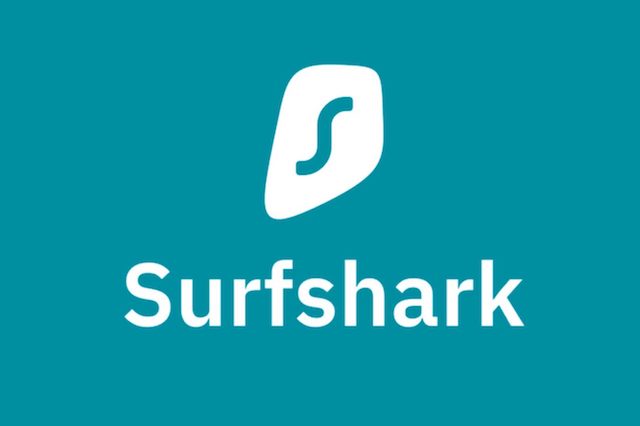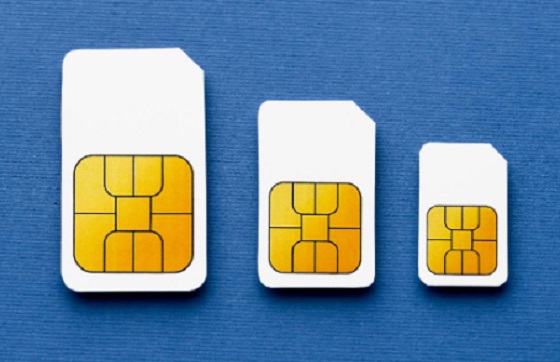Also Interesting
Streaming with a VPN: Separating Myths from Facts

Today, streaming platforms have profoundly transformed our entertainment consumption habits, offering us a buffet of content at our fingertips.
Yet, a fraction of users worldwide face geographical limitations and content access challenges.
Enter the VPN, a tool increasingly employed to bypass these barriers and access a broader scope of streaming content. The meaning of VPN is very simple – Virtual Private Network and it hides your identity by providing an extra layer of protection.
Let’s dig deep into the world of streaming with a VPN, shattering the myths, assessing the pros and cons, and deciphering the legal nuances.
The Myths of Streaming With a VPN
VPNs are often surrounded by a fog of misconceptions despite their growing popularity. Let’s clear the air on some of these myths:
VPNs are illegal
Contrary to popular belief, using VPNs is legal in the majority of countries. What remains illegal is employing them for malicious or prohibited activities. Before leveraging a VPN for streaming, it’s imperative to familiarize oneself with the local regulations.
VPNs slow down your internet speed
A widespread notion is that VPNs invariably reduce internet speeds. While it’s true that VPNs can sometimes cause a dip due to data encryption and rerouting, they can, under certain circumstances, even boost internet traffic. Factors influencing VPN speed include the chosen server’s location, the inherent speed of your connection, and the specific VPN protocol deployed.
VPNs make you 100% anonymous
VPNs are security tools, not invisibility cloaks. They fortify your online privacy and obscure your digital footprint, but they don’t render users entirely anonymous. Factors like VPN server logs and the visibility of VPN usage to ISPs prevent 100% anonymity.
VPNs give you unlimited access to all content
A common misconception is that VPNs provide unrestricted access to all online content. While they can indeed unblock geo-restricted content, some streaming services have advanced systems to detect and deter VPN usage.
The Advantages of Streaming With a VPN
VPNs offer an array of benefits to the streaming community:
Watch geoblocked content
VPNs empower users to tap into content libraries from around the globe by connecting to international servers, circumventing regional restrictions.
Stream on restricted networks
Be it school, college, or workplaces, VPNs allow users to evade network restrictions and access their favourite streaming platforms.
Avoid bandwidth throttling
Streaming during high-traffic hours can lead ISPs to throttle your bandwidth. VPNs cloak your streaming activities, keeping such throttling at bay.
Stream securely and privately
Using VPNs ensures your online activities are encrypted, offering protection, especially on vulnerable public Wi-Fi networks.
Keep your streaming private
With a VPN, your online destinations remain concealed from ISPs or mobile networks, preserving your digital privacy.
The Downsides of Streaming With a VPN
Like any tool, VPNs come with their set of challenges:
Slower internet speeds
As discussed, VPNs can sometimes lead to reduced internet speeds. However, premium VPN services invest in robust infrastructure to minimize this impact.
Blocked by some streaming services
Several streaming services are upping their game by deploying measures to identify and block VPN accesses, posing challenges to users seeking geo-restricted content.
Legal Implications of Streaming With a VPN
Employing a VPN to tap into geo-specific content might breach streaming platforms’ terms of service. However, it doesn’t translate to an illegal act. It is paramount, though, to remain updated on the legal standing of VPN usage in one’s country, as regulations vary.
Final Words
Using a VPN for streaming is akin to a double-edged sword—offering immense benefits in content accessibility and security, yet posing potential speed and access challenges. As always, the key lies in staying informed—choosing a top-tier VPN provider and being aware of the legal landscapes in your region. Happy streaming!
Also Interesting
If You Frequently Travel, A Second Phone Number Can Be A Cost Effective Solution

Advances in transport technology have reduced not only travel times but also costs. Airlines and tour companies offer a wide array of cut-price deals, so if you already have a destination in mind, sign up for email alerts. Today, you can fly from Canada to Europe in around 6 hours, whereas decades ago, the same journey took weeks by boat. Maybe you travel to represent your organization for work-related purposes. In that case, you get to combine business and leisure, so you’ll return to the office refreshed and ready to be productive.
Suppose you’re an international traveler, a savvy vacationer, or even a local adventurer. In that case, you know a few trips make your trip easier: a passport, comfy shoes, and a six-port USB charger. And it doesn’t take long to realize there’s one thing you’ve forgotten. You need an eSIM Canada for enhanced privacy protection, streamlined communications, and the ability to avoid expensive roaming charges. You probably have an expensive Android or iPhone device, so the last thing you want is another handset. There are many ways to add an extra phone number that works with your smartphone.
Get And Setup An eSIM, Which Works Like A Physical SIM Card
eSIM technology offers a seamless, more integrated approach to connectivity, so it’s a progress from traditional SIM cards. By enabling the eSIM profile, you get access to the operator’s network, which is optimized for local access and helps avoid potential roaming restrictions. This level of resiliency is convenient for specific use cases, such as Google Maps, that require automatic initial connectivity. I you’re traveling, it’s recommended to install the eSIM a couple of hours before your trip or once you’ve reached your destination. The validity period starts counting. You’ll need a WiFi or data connection to set up the eSIM on your device.
You can manually activate the eSIM by pasting the installation code (and any other required information) if you don’t have another device to scan. You should activate the eSIM as soon as you arrive at our destination to prevent your mobile phone data from being used. Activating roaming or data roaming from your device will activate the plan. You can install the eSIM by scanning the QR code you received from the provider: open the built-in camera app, point the camera at the QR code, and tap the banner that appears on your phone. Label the eSIM and set your preferences for calls, messages, and data.
Not Only Do You Get To Keep Your Phone, But You Can Also Add A New Number
An additional phone number allows you to distinguish between personal and professional calls and messages, fostering a healthier work-life balance, and adds another layer of anonymity when interacting with strangers. Work, friends, family, and dating contacts are entirely separate. Texting is unlimited, calling works with your carrier within minutes, and voicemail is easy to customize. You can talk and text using any phone number at any time. The second line might be a disposable or semipermanent number. When traveling overseas, you’ll need to provide your phone number to hotels, bicycle-sharing services, and so on.
Having a phone that works just like it does back home when traveling abroad is the best thing you can do to reduce stress. Being able to keep in touch with family and friends, using Google Translate, and having access to booking sites in the event of delays are just some of the reasons why Internet access is indispensable. Get a full-featured number that supports limitless Internet so you can use apps like WhatsApp, Facebook Messenger, or Skype. It’s not a good idea to use image-heavy social media apps like Snapchat or Instagram.
How To Get The Best Performance Out Of Your Esim When Traveling
Some smartphones have both a removable SIM card and an eSIM card, which allow users to have two separate numbers – i.e., a personal number and a work number – on one device. After establishing a connection to a mobile network, your eSIM will be functional and ready for immediate use. Using a local mobile network while overseas is more affordable than paying roaming costs to your home network; should you mistakenly erase your eSIM, you must reach out to your provider and ask for another installation code. Some device manufacturers offer instructions on how to use plans from two different providers.
In what follows, we’ll present our favorite tips on how to make the most of your eSIM when traveling abroad:
● Strategically plan your data usage: Review your plan details before jetting off. Understanding what your eSIM package includes will help you prepare for your trip and stay connected while miles away.
● Give your eSIM a custom name: During the eSIM installation, you can label your new SIM. For instance, you can name the eSIM “Travel” or “Canada eSIM” and your existing physical SIM “Personal”. If you change your mind, you can edit them at any time.
● Turn on push notifications: You can turn on push notifications to be informed if data is running low or your eSIM is about to expire. You can stay focused without constant interruptions.
In Closing
If you’re traveling internationally, having a second phone number can offer several advantages, such as security, privacy, and convenience. It can be used for bookings, online registrations, and transactions, therefore minimizing the risk of your primary number being exposed to scams and other types of cyberattacks. You can install one or more eSIMs on your device and have two phone numbers at the same time. Remember, the service provider has control over the subscription and is required to maintain an adequate phone signal.
The eSIM plan will automatically expire once you’ve used up your data or when your purchased days run out. You can add more days to your existing plan by reloading your eSIM: simply log into your account and choose the eSIM you wish to extend so you don’t have to worry about connectivity interruptions. This is ideal for short or even long-term travelers.
Also Interesting
How to Deposit and Withdraw in CAD at Sol Casino: A Guide for Canadian Players

When choosing an online casino, Canadian players not only look for exciting games and bonuses but also for easy and secure payment methods in Canadian dollars (CAD). Sol Casino understands this need and has created a streamlined system for deposits and withdrawals that suits players across Canada.
This guide walks you through how to fund your account, cash out your winnings, and which methods are most efficient and convenient.
Why Use CAD at Sol Casino?
Sol Casino supports transactions directly in Canadian dollars, which is a huge advantage. This means:
No currency conversion fees
Simplified banking
Faster transactions
Better tracking of your gambling budget
For Canadian players, avoiding unnecessary fees and delays is crucial. Sol Casino ensures you can deposit and withdraw in your local currency without any added complications.
How to Deposit Funds at Sol Casino (Step by Step)
Funding your Sol Casino account is simple. Follow these steps to make a deposit:
1. Log in to your Sol Casino account.
2. Go to the Cashier/Deposit section.
3. Choose your preferred payment method.
4. Enter the amount you wish to deposit (minimum deposit usually starts at $20 CAD).
5. Follow the prompts to complete the transaction.
Most deposits are instant, meaning you can start playing right away.
Popular Deposit Methods for Canadians
Sol Casino offers a variety of trusted options tailored for Canadian players:
Interac e-Transfer: A go-to choice in Canada, easy to use and highly secure.
MuchBetter: A modern e-wallet app offering fast, private transfers.
ecoPayz: Another reliable e-wallet widely used in Canada.
Visa/Mastercard: Traditional and familiar for most users.
Cryptocurrencies: Includes Bitcoin, Ethereum, and more for added privacy.
Each method is secure and designed to fit your lifestyle and preferences.
How to Withdraw Winnings in CAD
Cashing out your winnings is just as easy. Here’s how to request a withdrawal:
1. Go to your account dashboard and select Withdraw.
2. Choose the same method used for depositing (if possible).
3. Enter the amount you want to withdraw.
4. Submit your request and wait for confirmation.
Before processing your first withdrawal, Sol Casino may ask for ID verification to comply with KYC (Know Your Customer) rules. This is standard for any legitimate casino and helps protect your account from fraud.
Withdrawal Processing Time
Sol Casino processes withdrawal requests quickly. Here’s a general idea of how long it may take:
E-wallets (MuchBetter, ecoPayz): 0–24 hours
Cryptocurrency: 1–12 hours (depending on network speed)
Interac: 1–2 business days
Cards (Visa/Mastercard): Up to 3–5 business days
Once your identity is verified, future withdrawals are often processed faster.
Tips for Smooth Transactions
Verify your account early to avoid delays during your first withdrawal.
Use the same method for deposit and withdrawal whenever possible.
Set responsible limits to manage your gambling activity.
Watch for promotions offering cashback or deposit bonuses for specific payment methods.
Sol Casino also sends notifications and email confirmations for each transaction, adding transparency to the process.
Customer Support for Payment Issues
If you run into any trouble while depositing or withdrawing, Sol Casino has a 24/7 support team ready to help. You can use:
Live chat for immediate assistance
Email support for more detailed inquiries
FAQ section with answers to common questions about payments
All services are available in English and French, making support accessible to all Canadian users.
Conclusion: Fast, Flexible, and Canadian-Friendly Banking
Sol Casino has built a payment system that respects Canadian needs. With support for CAD, a variety of local methods like Interac and MuchBetter, and fast withdrawals, it provides a hassle-free banking experience. Whether you’re playing for fun or aiming for big wins, Sol Casino ensures your money is handled safely, securely, and efficiently.
-

 Business2 days ago
Business2 days agoIs Government Inflation Reporting Accurate?
-

 2025 Federal Election2 days ago
2025 Federal Election2 days agoCarney’s Hidden Climate Finance Agenda
-

 2025 Federal Election2 days ago
2025 Federal Election2 days agoWhen it comes to pipelines, Carney’s words flow both ways
-

 2025 Federal Election2 days ago
2025 Federal Election2 days agoStudy links B.C.’s drug policies to more overdoses, but researchers urge caution
-

 2025 Federal Election2 days ago
2025 Federal Election2 days agoPolls say Canadians will give Trump what he wants, a Carney victory.
-

 2025 Federal Election1 day ago
2025 Federal Election1 day agoCarney Liberals pledge to follow ‘gender-based goals analysis’ in all government policy
-

 2025 Federal Election1 day ago
2025 Federal Election1 day agoPoilievre’s Conservatives promise to repeal policy allowing male criminals in female jails
-

 2025 Federal Election1 day ago
2025 Federal Election1 day agoTrump Has Driven Canadians Crazy. This Is How Crazy.





